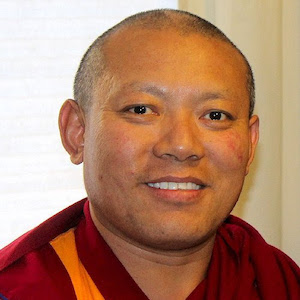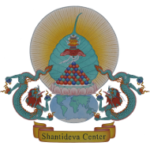The Buddha encouraged his followers to investigate his words, like a goldsmith tests metal to verify that it is gold—by bending, heating, and stretching. This process is key to turning theory into your own practice. In this five-week series, join Geshe Tenley as he guides us through the theory and the practice of wisdom and compassion. On Friday evenings, learn the theory behind that weekend’s topic. Then gain experience on that topic during Saturday’s practice session.
(Jump to recording of past sessions)
May 8 & 9
Week 1: The Meaning of Om Mani Padme Hum
Buddhist mantras have special powers to tune the mind to be in sync with positive qualities. This beloved mantra of Chenrezig, the Buddha of Compassion, is endowed with the powers of compassion and wisdom. On Friday evening, learn the meaning behind this mantra. Then, on Saturday, apply that knowledge by using the mantra to cultivate compassion and wisdom in your own mind!
Jun 19 & 20
Week 2: What Is the Benefit of Learning the Emptiness View?
The understanding of emptiness is said to be one of the most profound realizations on the Buddhist path. But what are its benefits? What could this understanding offer to your own practice? On Friday, learn the benefits of the wisdom of emptiness. Then, on Saturday, check for yourself to see what this may do for your own mind. Understanding the benefits of this view is the first step to attaining it!
Jul 10 & 11
Week 3: Is There an Antidote to Our Delusions?
The ordinary mind is usually unrealistic—exaggerating the positive features of what we desire and the flaws that we reject. Fortunately, Buddhism offers methods of counteracting our unrealistic mind. On Friday evening, we will discuss the most powerful antidote to our delusions. Then, on Saturday, apply the theory and try working to counteract your own delusions.
Aug 7 & 8
Week 4: How Do We Practice Great Compassion?
We all have experiences of ordinary compassion. But what does it take to practice great compassion in difficult times, or toward people who challenge us? How do we get this compassion to flow outward—not just to friends, but to all sentient beings? On Friday evening, learn methods for doing just this. Then, see what it’s all about in Saturday morning’s practice!
Oct 23 & 24
Week 5: How Do We Practice Compassion Grounded in Emptiness?
It is said that wisdom and compassion are like two wings of a bird—both must operate together in order to progress on the spiritual path. What does this mean, and how do we practice compassion grounded in the wisdom of emptiness? On Friday evening, Geshe-la will teach on this important integration. Then, on Saturday, discover how to put this theory to the test.
Recording of Past Sessions
Week 1: The Meaning of Om Mani Padme Hum
Week 2: What Is the Benefit of Learning the Emptiness View?
Week 3: Is There an Antidote to Our Delusions?
Week 4: How Do We Practice Great Compassion?
Week 5: How Do We Practice Compassion Grounded in Emptiness?
Note: Part 2 was not recorded
About the Teacher
 Geshe Tenley is the Resident Teacher at Kurukulla Center for Tibetan Buddhist Studies in Boston. He was ordained by the late Gyume Khensur Geshe Urgyen Tseten Rinpoche in 1990 and began the program of studies to become a geshe at Sera Jey Monastic University. During the course of his studies, he has received many teachings from His Holiness the Dalai Lama as well as many other highly qualified masters. In 1998, he received his full ordination (gelong) vows from His Holiness and received his geshe degree in 2008. He began teaching at Kurukulla Center in 2009 and was appointed the Resident Teacher by Lama Zopa Rinpoche in 2010. Geshe Tenley is well-known for his approachability and kindheartedness. His extensive activities in the US and around the world bring great joy and benefit to everyone he meets.
Geshe Tenley is the Resident Teacher at Kurukulla Center for Tibetan Buddhist Studies in Boston. He was ordained by the late Gyume Khensur Geshe Urgyen Tseten Rinpoche in 1990 and began the program of studies to become a geshe at Sera Jey Monastic University. During the course of his studies, he has received many teachings from His Holiness the Dalai Lama as well as many other highly qualified masters. In 1998, he received his full ordination (gelong) vows from His Holiness and received his geshe degree in 2008. He began teaching at Kurukulla Center in 2009 and was appointed the Resident Teacher by Lama Zopa Rinpoche in 2010. Geshe Tenley is well-known for his approachability and kindheartedness. His extensive activities in the US and around the world bring great joy and benefit to everyone he meets. 

